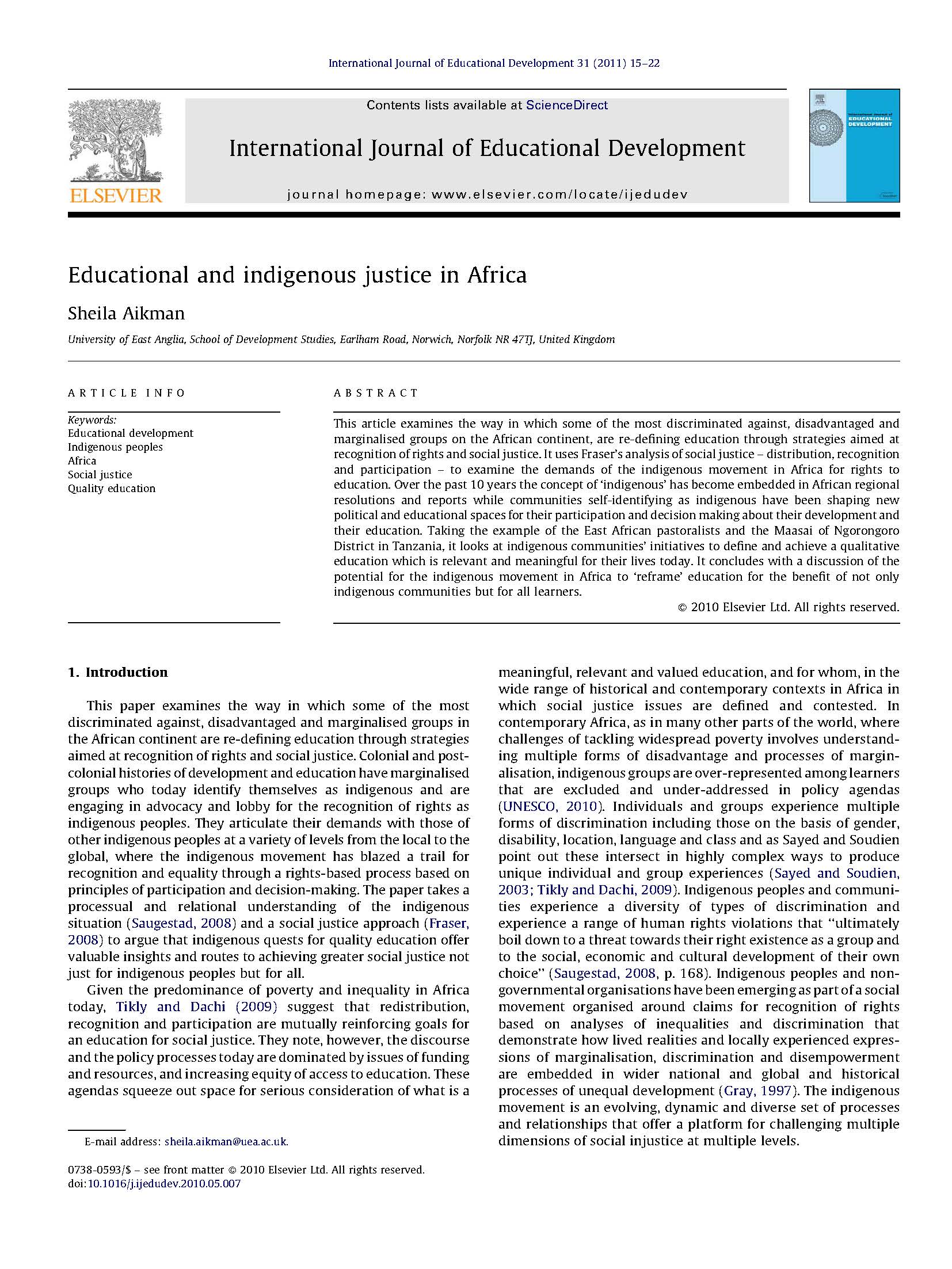Educational and indigenous justice in Africa

This article examines the way in which some of the most discriminated against, disadvantaged and marginalised groups on the African continent, are re-defining education through strategies aimed at recognition of rights and social justice. It uses Fraser’s analysis of social justice – distribution, recognition and participation – to examine the demands of the indigenous movement in Africa for rights to education. Over the past 10 years the concept of ‘indigenous’ has become embedded in African regional resolutions and reports while communities self-identifying as indigenous have been shaping new political and educational spaces for their participation and decision making about their development and their education. Taking the example of the East African pastoralists and the Maasai of Ngorongoro District in Tanzania, it looks at indigenous communities’ initiatives to define and achieve a qualitative education which is relevant and meaningful for their lives today. It concludes with a discussion of the potential for the indigenous movement in Africa to ‘reframe’ education for the benefit of not only indigenous communities but for all learners
Year:
Organisation:
International Journal of Education Development
Keywords:
social justice, Community
Marginalized & Vulnerable group:
Indigenous & Minorities
Topic:
System wide approach
Level of Education:
Non-formal Education
Type of Resources:
Research & Policy Papers
Country/Region:
Africa
Language of Publication:
English